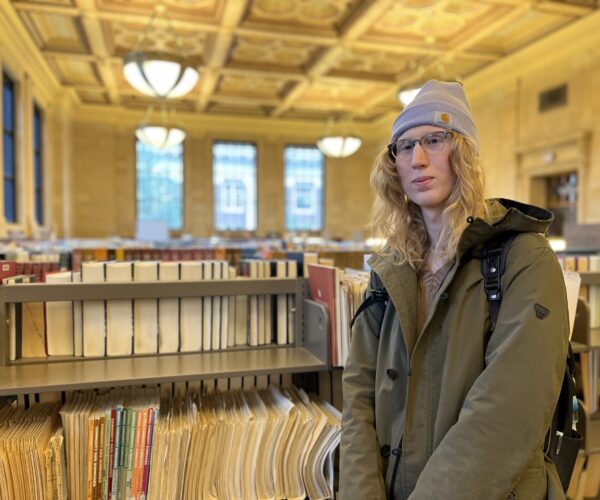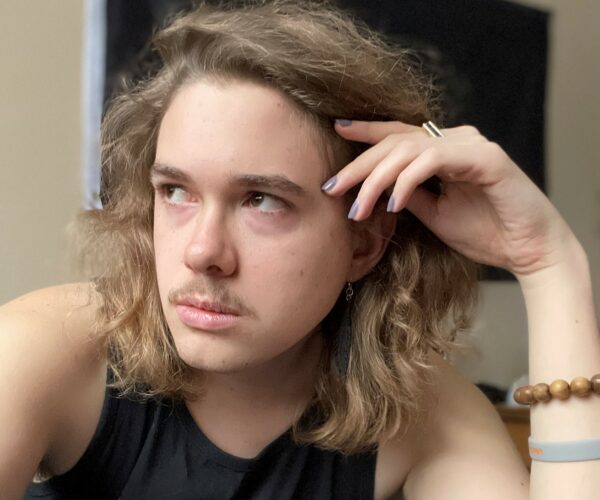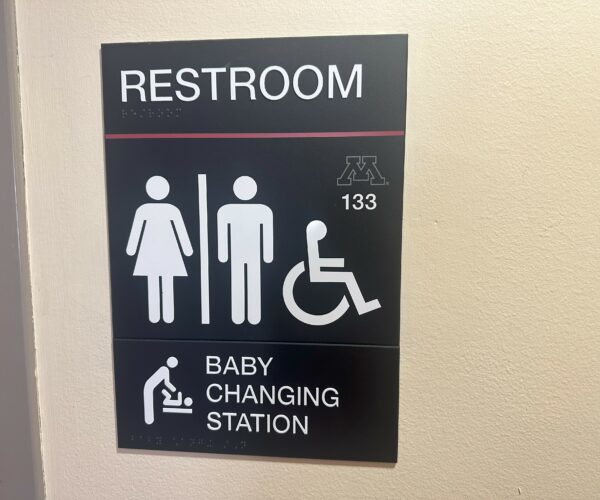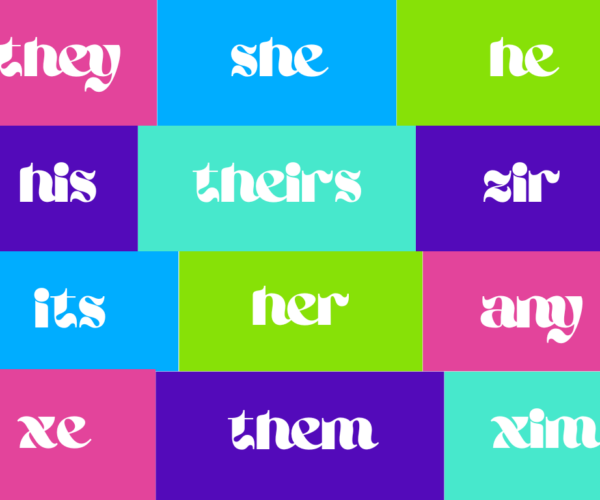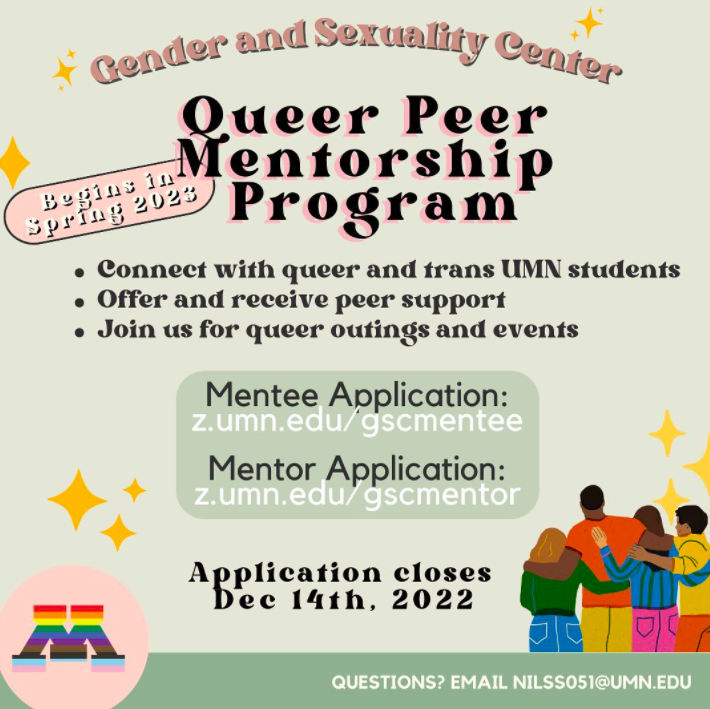By Aarushi Sen
Maggie Moynihan, who identifies as a lesbian, said her high school’s town of Prior Lake was not welcoming to queer people. The lack of LGBTQ+ acceptance made it hard for her to find queer mentors.
“There wasn’t anyone older than me,” Moynihan said. “There weren’t any adults who were out and able to help us, you know, like teachers or guidance counselors.”
So when Moynihan got to the University of Minnesota as a first-year youth studies student, she joined the Gender and Sexuality Center’s (GSC) Queer Peer Mentorship Program.
The Queer Peer Mentorship Program is a semester-long initiative pairing mentors and mentees from the queer community. Its purpose is to build community among LGBTQ+ students at the University, according to Alex Nilsson, a fourth-year student and one of the program’s facilitators.
The GSC tries to pair people based on identity, interests and academics, Nilsson said.
Mentors and mentees typically do things together, such as going out for food or drinks or attending events, according to Nilsson.
“People just kind of set up their boundaries and expectations with each other for it,” Nilsson said. “Some people join because they want more academic guidance, and some are joining just because they want to make more friends.”
The program is open to all undergraduate or graduate queer students at the University. However, students who want to apply to be mentees must be undergraduate students, and those applying for the mentor role must have attended the University for at least one year.
Occasionally, the mentorship program hosts group events where all the mentors and mentees can meet each other.
The GSC is currently planning a kickoff event for the mentorship program. Nilsson said the event will include “food, games, speed friending, stuff like that.”
The kickoff was originally supposed to take place in February, but had to be rescheduled due to weather, Nilsson said.
Xiong Vivar, a psychology and social justice student, said being part of the program has helped them connect with other queer students. Vivar shares their mentor with another mentee in the program. The three of them have met once and are planning to meet again.
The first time they met was at a Dinkytown restaurant, where they shared their backgrounds and experiences.
“When I talk about my story, a lot of people tend to understand better and happen to be able to connect in different ways,” Vivar said.
For Vivar, that meant sharing the experience of being a queer student when starting college in 2006.
“I went to college thinking, ‘Hey, I’m the only person like myself,’” Vivar said. “I didn’t even know like gay rights existed.”
